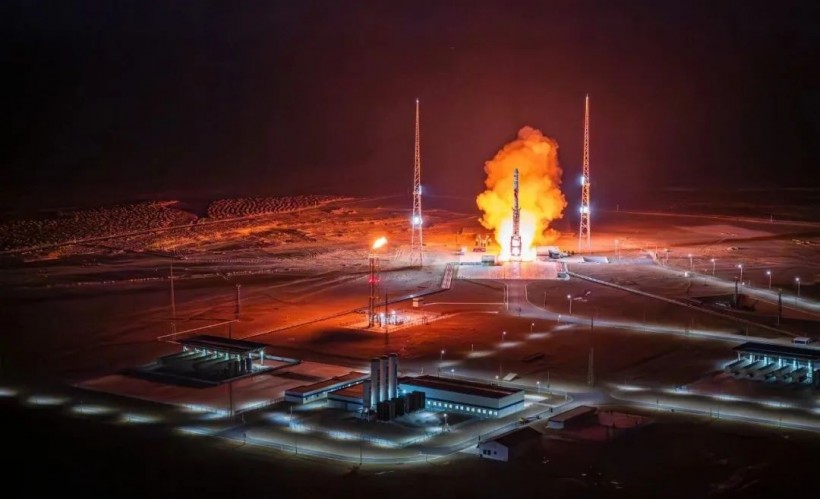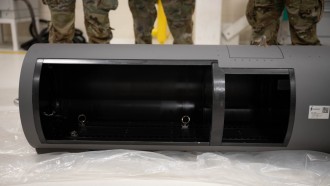The Zhuque 2 Y-3 rocket, powered by methane and liquid oxygen, soared into the skies from the Jiuquan Satellite Launch Centre in northwest China, on Saturday, Dec. 9. This marked a watershed moment in China's aerospace history.
This historic launch marks the world's first successful deployment of satellites using methane-fueled rockets, a triumph for Beijing-based private aerospace company LandSpace.

China's LandSpace marks a milestone with the Zhuque 2 Y-3 rocket launch using methane, advancing space tech and commercial viability globally.
Launching the World's First Methane Powered Rocket
The milestone, reported by both the South China Morning Post, showcases China's advancements in space technology, placing them at the forefront of innovation. LandSpace's achievement precedes similar attempts by renowned entities like SpaceX, underlining the nation's commitment to space exploration.
The rocket, measuring 49.5 meters in length with a diameter of 3.35 meters and a lift-off mass of 220 tonnes, propelled three satellites—Honghu, Honghu 2, and TY-33—into a planned orbit.
While specific details regarding the satellites' dimensions weren't disclosed, their deployment into a 460km sun-synchronous orbit contributes to the development of a low-orbit satellite constellation.
The significance of this launch extends beyond its immediate success. Methane, known for its clean-burning properties compared to traditional carbon-based fuels, opens doors to more sustainable and cost-effective space travel.
According to NASA, methane's stability and density, compared to liquid hydrogen, allow for more manageable storage and smaller tanks, potentially revolutionizing rocket technology.
Read Also: China to Outpace US, Europe in Recycling Critical EV Battery Minerals, Study Shows
What This Means for the Space Industry
LandSpace's breakthrough not only demonstrates the company's advanced technology but also holds enormous promise for commercial space endeavors.
The company expects to increase payload capacity from 1.5 tonnes to 4 tonnes at a 500km sun-synchronous orbit, catering to spacecraft and near-Earth orbit satellites.
"We will continuously create highly reliable, cost-effective, and high-capacity commercial launch rocket products," the company said.
The venture's significance is amplified by its potential to attract investor confidence in methane as a viable rocket fuel. This success could pave the way for reduced costs and bolster the feasibility of reusable rockets, aligning with global efforts to make space exploration more efficient and environmentally sustainable.
Moreover, China's ambitious space aspirations extend beyond this achievement. The country aims to bolster its space capabilities, aspiring to become a world-leading space power by 2045. Inspired by the successes of pioneering entities like SpaceX, numerous private tech start-ups, including LandSpace, have emerged in China, spearheading efforts to close the gap in space technology.
Notably, LandSpace's triumph follows previous unsuccessful attempts in December 2022, highlighting the challenges inherent in pioneering new technologies. The company's perseverance culminated in July's successful launch, signifying a turning point in the application of methane in commercial space launches.
While LandSpace carves its path in space exploration, other Chinese private rocket startups are also making strides. Companies like OrienSpace and Deep Blue Aerospace are gearing up for their debut launches, aiming to contribute to China's burgeoning commercial space industry.
Stay posted here at Tech Times,
Related Article: Japan Startup Successfully Tests Rocket Engine Entirely Powered by Cow Manure










